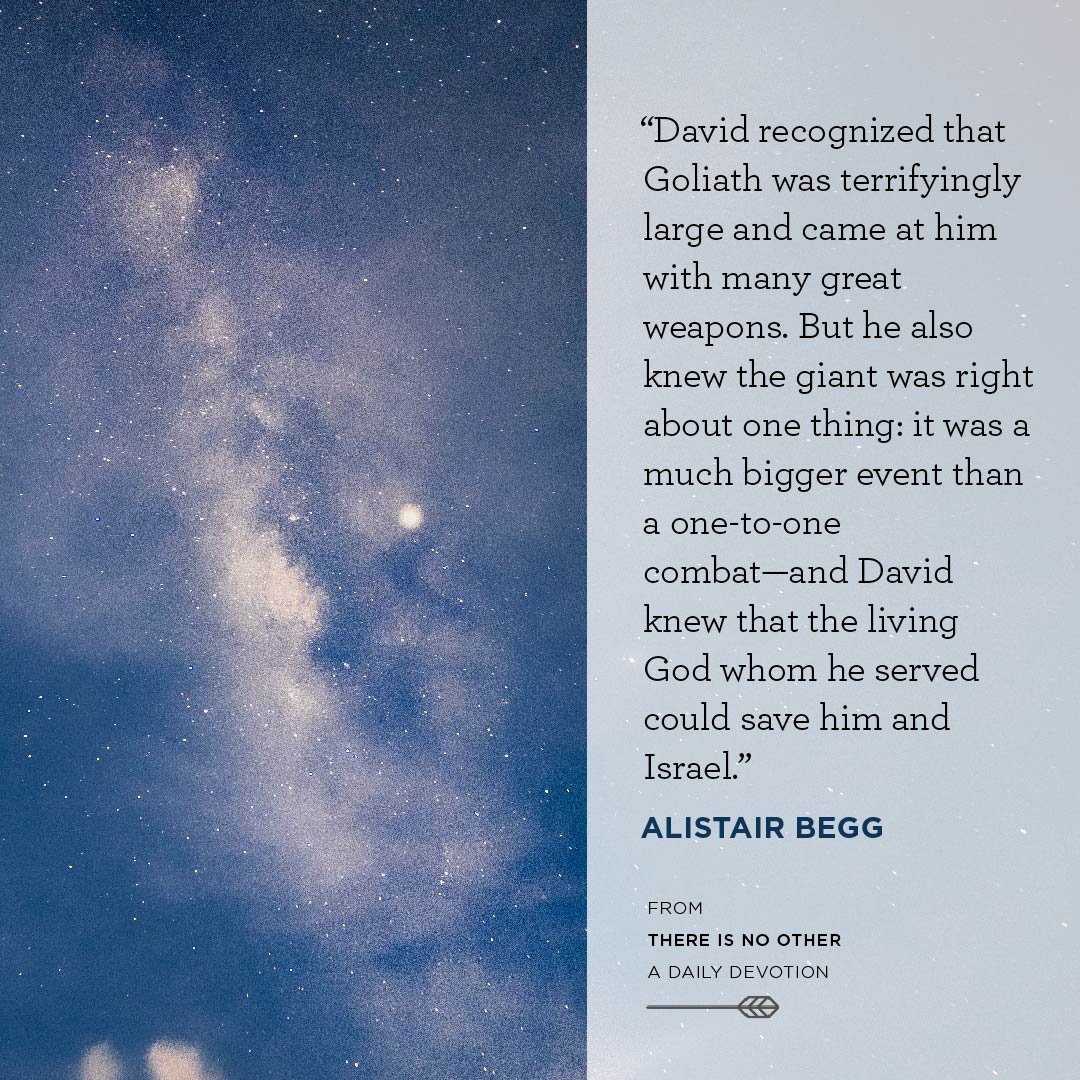The Man in Between: A 5-Day Plan on David and GoliathExemplo

There Is No Other
“When the Philistine looked and saw David, he disdained him … ‘Am I a dog, that you come to me with sticks?’ And the Philistine cursed David by his gods. … Then David said to the Philistine, ‘You come to me with a sword and with a spear and with a javelin, but I come to you in the name of the Lord of hosts, the God of the armies of Israel, whom you have defied. This day the Lord will deliver you into my hand.” 1 SAMUEL 17:42-43, 45-46 (ESV)
Taunting your opponent is a practice dating back to long before professional sports. When Goliath, for instance, was offended by the fact that a mere boy had been sent to fight him, he started with the insults —and he “cursed David by his gods.”
Goliath’s cursing is significant. Through it, the giant unwittingly acknowledged that what was about to take place was far more significant than a conflict between two people or two armies or two nations. By invoking his gods, he demonstrated that the battle was ultimately between the so-called gods of the Philistines and the living God, the God of Israel.
A moment’s reflection should have reminded all the Israelites that the gods of the Philistines were not impressive at all. Like all false gods, they had to be carried around and couldn’t act on their own. Previously, the Philistines had had to set up their god Dagon after he had toppled over—and eventually, his head had even fallen clean off (1 Samuel 5:3-4)!
It makes sense, then, that Goliath’s insults or mention of his gods didn’t scare David. The shepherd boy recognized that the giant was terrifyingly large and came at him with many great weapons. But he also knew the giant was right about one thing: It was a much bigger event than a one-to-one combat—and David knew that the living God whom he served could save him and Israel.
David understood that Goliath’s defeat was not about making a name for himself; it would be so that “all the earth may know that there is a God in Israel” (1 Samuel 17:46). The victory was to be a testimony to the assembled crowd on both sides of the valley that God was alive and "mighty to save".
The battle today is, likewise, ultimately between the living God and the non-gods of our age (Ephesians 6:12). Ask your friends kindly, and ask how the world's gods - the gods of ambition, politics, education, and so on—are working for them. Do they have peace? Do they have lasting confidence? Do they have contentment? Do they have joy?
Thankfully, we have someone who gives all these things and more. We have the God who doesn’t topple and who needs nothing from us. We know the living God who has been faithful for a thousand generations and who tells us, “I have made, and I will bear; I will carry and will save” (Isaiah 46:4). Let the world around you see and hear who it is you serve today.
- How is God calling me to think differently?
- How is God reordering my heart’s affections—what I love?
- What is God calling me to do as I go about my day today?

Escritura
Sobre este plano

David vs. Goliath: It’s one of the most famous one-on-one battles in human history. However, it is often misunderstood. In this 5-day plan, you’ll learn why this story’s central message is far more profound than a mere call to imitate David’s heroic behavior.
More





